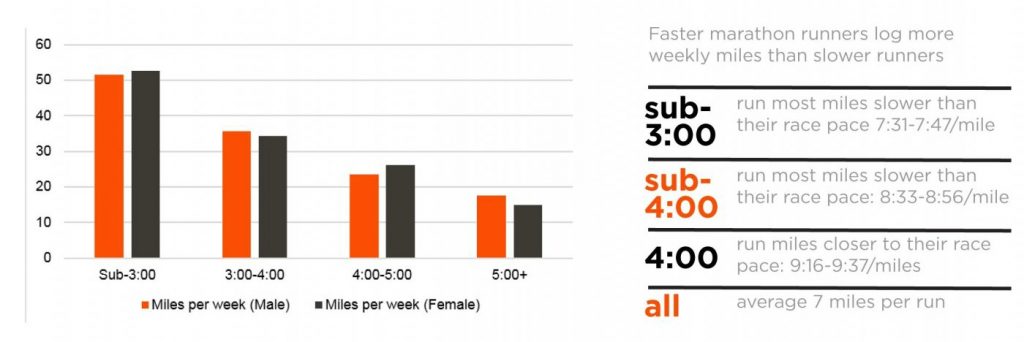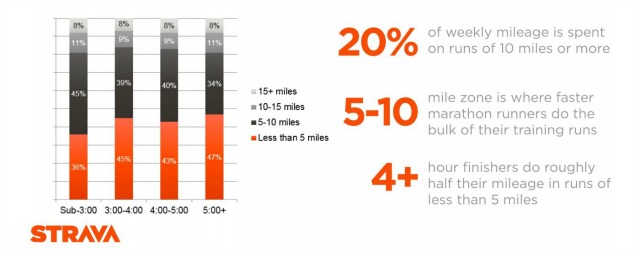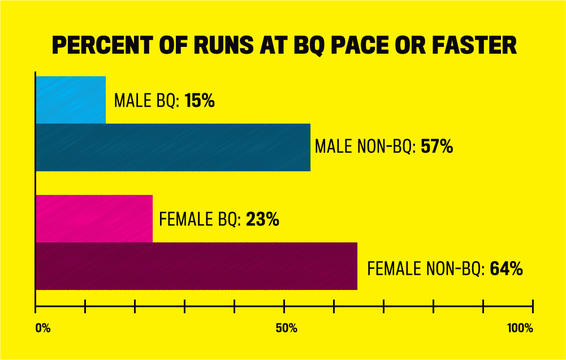The marathon holds a special place in many runners minds: it’s the ultimate test of endurance, grit, and mental toughness.

Every day, I get questions from my readers about the marathon:
- “Should I take a gel every 4 miles or every 3 miles during the race?”
- “What brand of salt stick do you recommend?”
- “Should I race in compression socks?
But the most important factor that affects how well you’ll race is not any of the above issues.
It’s how much weekly mileage you’re capable of running.
The principle is simple: run more and you’ll race faster.
Consider:
- My college cross country coach (only half jokingly) prescribes more mileage to fix any problems with your running
- Jay Johnson has said, “For the average runner, running more will lead to faster running. End of story.”
- Renowned UC-Boulder Cross-Country coach Mark Wetmore says, “The cornerstone [of our program] is the long-term, patient development of the aerobic metabolism.”
Let’s also see what’s considered “normal” mileage levels for runners at different points in their careers:
But it’s not just coaches who are advocating for higher mileage for improved performances… runners are realizing it, too.
How Do BQ Marathoners Train?
Strava published some fascinating data on the training of marathoners that I suggest everyone look at. Here are the highlights.
Faster runners run higher weekly mileage:

Slower runners do more short runs and fewer “mid-distance” runs of 5-10 miles:

And in this Runner’s World graphic, we can see that faster runners also run slower relative their abilities:

Now we know: it pays to run easy!
How Do We Learn From This Data?
First, I don’t think any of this information is groundbreaking. This should not be your “ah-ha!” moment.
We’ve known for years that high mileage produces faster runners. And this data confirms two principles that we already know:
1. Running more helps you race faster
Is this any surprise? I’ve written about the value of high mileage for years:
- Focus on increasing your overall weekly mileage
- Run a consistent long run almost every week
- Run more days per week
2. Running easy is critical for balance.
Most runners are amazed at how easy “fast” runners train most of the time.
Here’s a great litmus test: if the best runners in the world run easy for most of the time, why can’t you?
And if you’re in doubt, just slow down. Slower is better than faster when it comes to training!
How Much Mileage Do SR Marathoners Run?
Now, the fun part: how much mileage do YOU run?
In the comments below, I want to hear from marathoners in the Strength Running community. Let us know how much weekly mileage you put in during your peak training.
I think this will give us a good idea of the ranges that are possible – and encourage us all to to run a little bit more.
Because when our capacity for work increases, so does our capacity for speed.